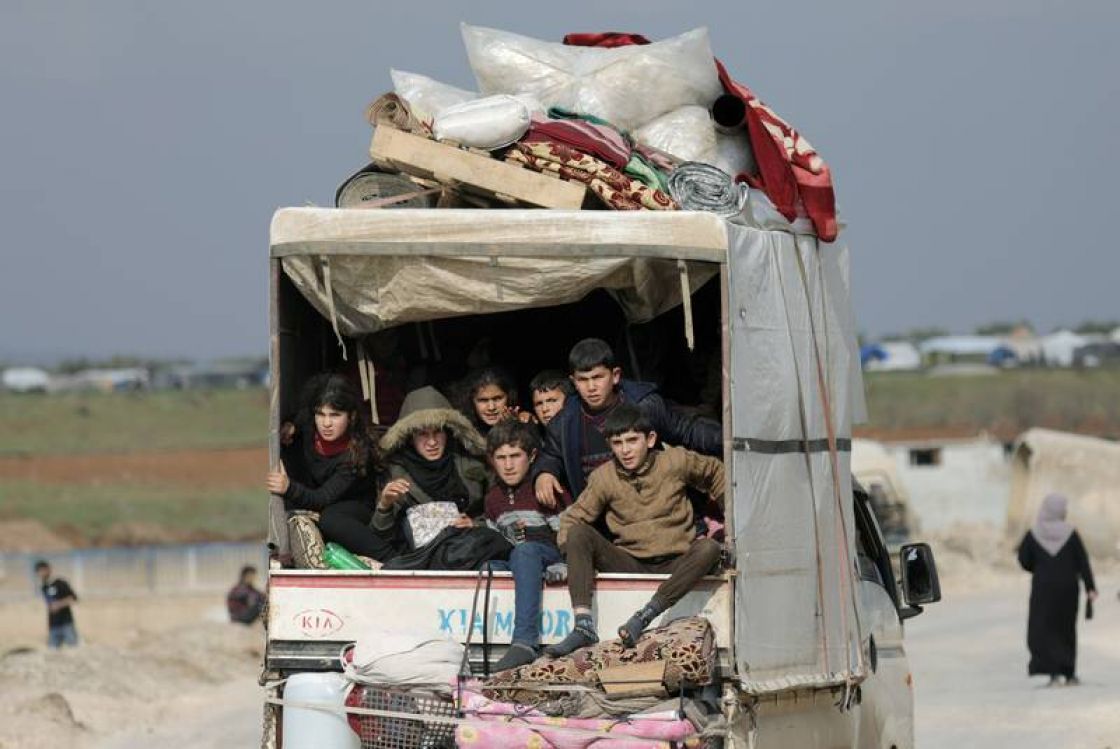- Articles
- Posted
So Far, We’ve Only Seen the Tip of the Mountain of Alignments between the Extremists
As the solution to the Syrian crisis approaches, we should expect the efforts to sabotage the political process to become greater and more blatant, whether from local or international actors. These efforts are not new, but previously, it was possible for some to disguise them, at least to the ordinary observer, including a large portion of the Syrian people. Today, it is no longer possible to undermine all efforts to proceed forward with the political process without being crystal clear to the naked eye.
At the International Level
The West, but mainly the US, have not spared any opportunity to impose policies and measures to sabotage efforts to have Syrians sit together. This was the case at the level of the Syrian-Syrian negotiations pursuant to UNSCR 2254, but also at the local level. A clear and recent example of that is the Kurdish-Kurdish dialogue, which the US and other western countries tried to sponsor, which in their understanding means determining the parameters within which any agreement would be reached. In fact, and as many indications reveal, the US has practically imposed as a condition to the dialogue that any agreement between the two sides cannot be adopted unless the US also agrees to it.
To further undermine any efforts in the northeast, the US pushed – either directly or through its Syrian proxies – to form new alliances that declare fierce and ethnic-based hostility towards the Syrian Democratic Council (SDC), in an attempt to ignite a Kurdish-Arab conflict in the northeast, which would contribute, if successful, to delaying progress in the political process at the national level.
Furthermore, the US and the EU continue to impose more sanctions, while still alleging that they are ensuring there are no adverse effects on Syrian civilians. However, living conditions for ordinary Syrians are sharply deteriorating, and are expected to further worsen with the winter season just around the corner, which will add to the misery of Syrians amid an outrageous increase in prices and acute shortage of many essentials, which affects all aspects of Syrians’ lives, some as basic as being able to secure their daily bread. All the while, the plundering few continue to plunder, and for the most part, even more than before. What they are trying to achieve by this is to get the people to the point where they would accept anything that would end their suffering, including the possibilities of dividing Syria, which some have come to speak about obliquely through propositions related to temporary decentralization or similar “creative” ideas, which is what the West aspires to do with certain conditions that would solidify its control in Syria and Syrian politics for generations to come.
The Syrian Sides
Extremists from all Syrian sides are doing their part too in undermining the political process and progress thereof. These are figures, groups, and currents benefiting from the war, one way or another. Moreover, for those, an end to the crisis, especially through a comprehensive political solution in which the Syrian people exercise their natural right to self-determination, means the end of their influence and ability to plunder the Syrian people and exploit their bloodshed.
Increasingly, these extremists are becoming more visible and easier to identify, and more importantly, their rhetoric and positions are starting to align perfectly on many issues, sometimes reaching the point of using the same phrases on some issues. These points of alignment include the following:
- The evasive and vague positions regarding the wave of normalization sweeping the region; this includes attempts to isolate the occupied Syrian Golan issue from the Palestinian cause, to the point of turning it into a “real estate dispute”.
- Pushing towards greater isolation of the northeast, including the ease with which the term “terrorism” is used to label the main forces there, with the associated ridiculous repetition of the logic of (military) “decisiveness”, and what that brings with it of moving further away from the logic of dialogue and understanding among Syrians.
- Attitudes and statements with regards to agreement among Syrian political forces outside the framework in which the two sides are dominating – a glaring example being the identical position from the MOU signed between the People’s Will Party and the Syrian Democratic Council at the end of this past August.
- Positions from sanctions imposed by the West, more specifically, the Caesar Act, and trying, one way or another, to deflect attention from its deadly criminal effects.
- Addressing only one part of the Syrian people, whether directly or through obsolete slogans, where the extremists in both sides consider part of the Syrian people to be their “popular base”, on behalf of which they appoint themselves spokespersons, while in parallel directly subjugating those people with economic, political, and security tools.
These are a few blatant examples of the alignment among the extremists in the Syrian sides, who along with their international backers, whether openly or otherwise, are working to undermine the political process and put obstacles in its path. However, the closer we get to the political solution with all the accumulated work therein, the more clearly exposed the real goals of the slogans become, which facilitates the process of separating the Syrian people as whole on one side and the plundering few from all sides on the other. This is an indispensable process not only for implementing UNSCR 2254, but also for transforming its implementation into a gateway to the comprehensive radical change that only takes into consideration the interest of the Syrian people.



 Reem Issa
Reem Issa